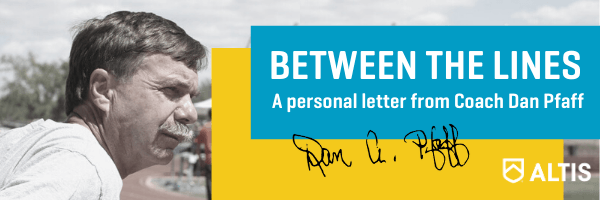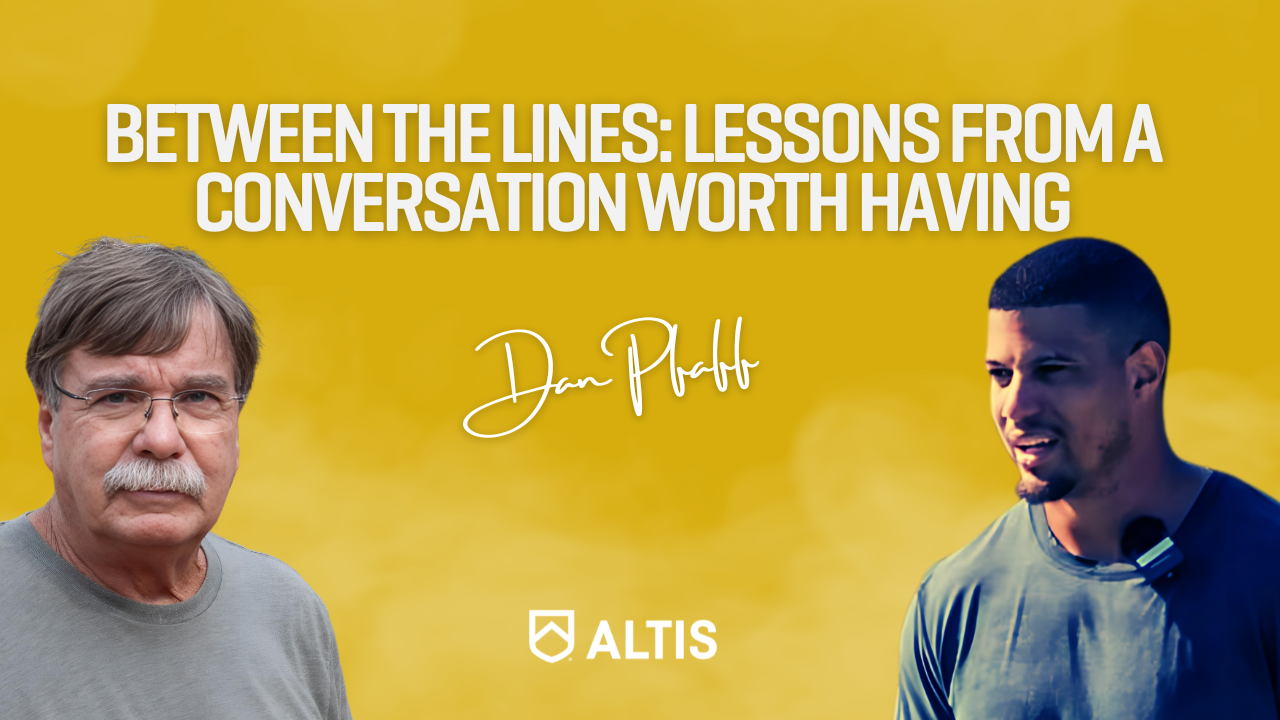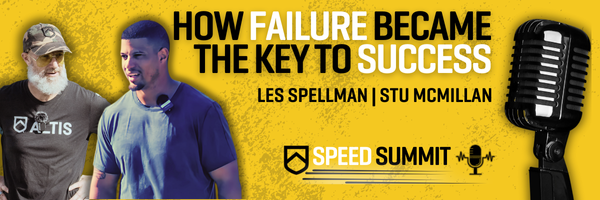Every week at ALTIS, we share three high-value emails designed to challenge, inform, and support coaches at every level.
Between the Lines—written by Dan Pfaff—is one of them. Each edition is a straight-talking reflection drawn from decades of coaching at the highest levels, and shaped by Dan’s ongoing conversations with coaches around the world.
This week, Dan builds on a standout episode from our Speed Summit Podcast Series—a conversation between Les Spellman and Stu McMillan that pulls back the curtain on what it really means to grow as a coach. Les talks openly about shifting from technician to systems thinker, learning to lead a multidisciplinary team, and staying grounded in high-pressure environments.
Dan’s take? Timely, honest, and packed with lessons you’ll want to revisit...

Hi There,
Les Spellman has a way of thinking out loud that draws you in.
His recent podcast with Stu was full of sharp insight, but also real honesty—and it got me reflecting on my own path through this profession.
Over the years, I’ve watched Les grow—not just in what he knows, but in how he thinks. Listening to him break down his experiences so candidly—the wins, the struggles, and the shifts in how he sees his role—was a reminder of how this profession keeps teaching us, no matter how long we’ve been at it.
One line really stuck with me.
“I feel most connected to myself when I’m coaching.”
Not “when I’m successful.” Not “when athletes win.”
When he’s coaching.
That one hit home.
When I was younger, I wouldn’t have had the language to say it quite like that—but I felt it. Coaching grounded me. Still does. It’s the lens I see the world through.
But how I define coaching now?
That’s shifted a lot over the decades.
In the early years, I was largely a technician. Hyper-focused on details. The foot. The arm. The hip. Fix this, correct that. My sense of success came from precision and control—often chasing changes I could point to.
Les talked about the same thing—being brought in by teams to fix someone’s “arms,” only to feel boxed in by that narrow scope. He called it “PTSD from coaching roles,” and I know exactly what he meant.
As he’s matured, Les has shifted his focus.
“Now I love living in the macro—seeing the full picture—but still staying involved in the micro day to day.”
That transition is a tough one. You trade the comfort of certainty for the discomfort of complexity.
You start asking better questions, and realize the answers don’t always come fast—or at all.
Another moment from the podcast that stood out: Les talked about building and managing a team of 22 staff and 22 athletes this past year. He described getting daily feedback—sometimes harsh—and not taking it personally. Just staying open.
“I’m getting crushed in the feedback sometimes, but I’m cool with that. It doesn’t affect me personally. I can separate Coach Les from the rest of who I am.”
That kind of perspective carries weight.
I’ve worked with a lot of bright young coaches who want the truth but aren’t ready to hear it. I’ve also seen veteran coaches shut themselves off completely to protect a fragile sense of expertise. Neither one wins.
The ability to hold your process lightly—to stay emotionally even, even when the work gets messy—is one of the biggest separators in this profession. And it’s not talked about enough.
Les reminded me that the best coaches aren’t afraid of ambiguity—they understand it’s part of the work.
So if you haven’t yet, give the episode a listen. Les shares his process, his evolution, and the mindset that’s helped him navigate both the chaos of the private sector and the pressure of Olympic sport.
Some valuable lessons tucked Between the Lines.
Keep growing,

WANT MORE?
If this resonated, there’s plenty more where it came from.
Between the Lines is one of three free weekly emails we send to the ALTIS community—alongside ALTIS Weekly and Outside the Lines.
Each one is built to bring you clear, actionable insight from real coaching experience, written by the ALTIS Staff.
Sign up free by dropping your details on the form below.


